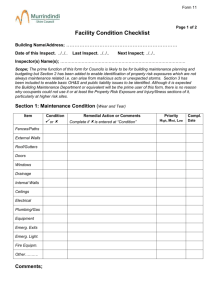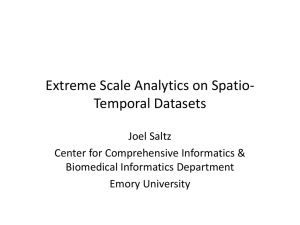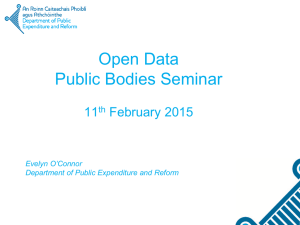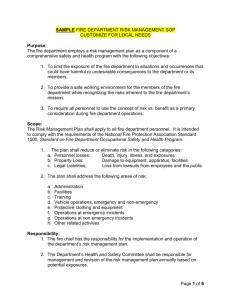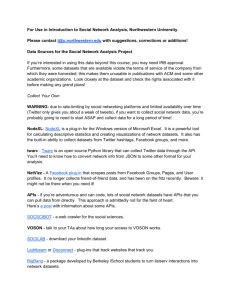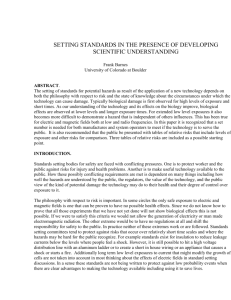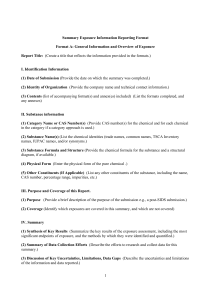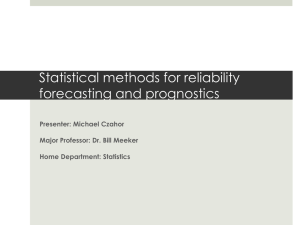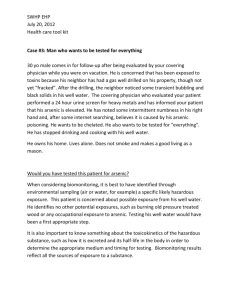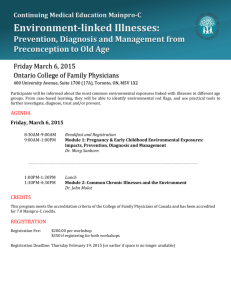Linking Surrogate Measure to Environmental Exposures and Health
advertisement
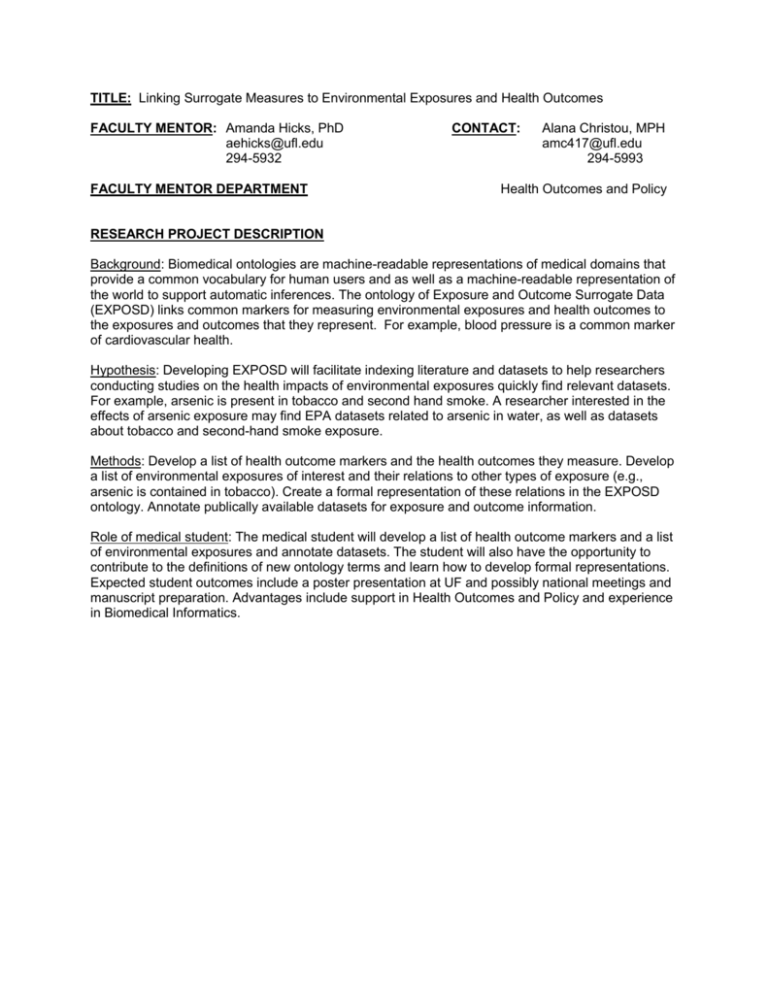
TITLE: Linking Surrogate Measures to Environmental Exposures and Health Outcomes FACULTY MENTOR: Amanda Hicks, PhD aehicks@ufl.edu 294-5932 FACULTY MENTOR DEPARTMENT CONTACT: Alana Christou, MPH amc417@ufl.edu 294-5993 Health Outcomes and Policy RESEARCH PROJECT DESCRIPTION Background: Biomedical ontologies are machine-readable representations of medical domains that provide a common vocabulary for human users and as well as a machine-readable representation of the world to support automatic inferences. The ontology of Exposure and Outcome Surrogate Data (EXPOSD) links common markers for measuring environmental exposures and health outcomes to the exposures and outcomes that they represent. For example, blood pressure is a common marker of cardiovascular health. Hypothesis: Developing EXPOSD will facilitate indexing literature and datasets to help researchers conducting studies on the health impacts of environmental exposures quickly find relevant datasets. For example, arsenic is present in tobacco and second hand smoke. A researcher interested in the effects of arsenic exposure may find EPA datasets related to arsenic in water, as well as datasets about tobacco and second-hand smoke exposure. Methods: Develop a list of health outcome markers and the health outcomes they measure. Develop a list of environmental exposures of interest and their relations to other types of exposure (e.g., arsenic is contained in tobacco). Create a formal representation of these relations in the EXPOSD ontology. Annotate publically available datasets for exposure and outcome information. Role of medical student: The medical student will develop a list of health outcome markers and a list of environmental exposures and annotate datasets. The student will also have the opportunity to contribute to the definitions of new ontology terms and learn how to develop formal representations. Expected student outcomes include a poster presentation at UF and possibly national meetings and manuscript preparation. Advantages include support in Health Outcomes and Policy and experience in Biomedical Informatics.
